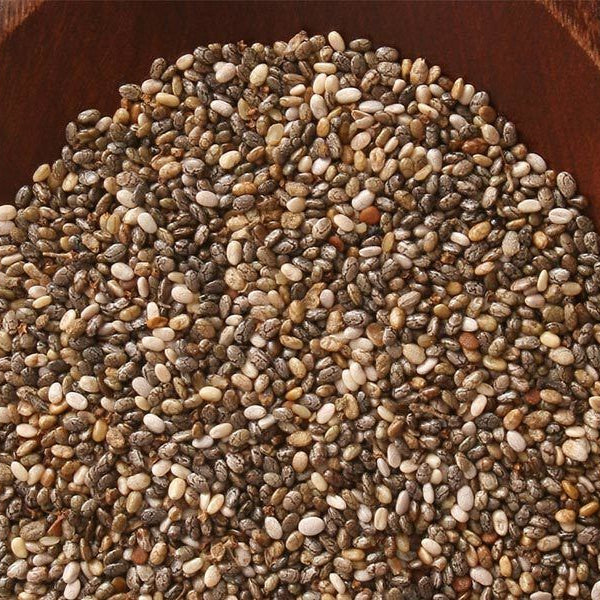
Are Sunflower Seeds Low Carb?
Low Carb Sunflower Seeds and Why They Are Good For You
Sunflowers (Helianthus annuus) are tall, bright yellow flowers, popular for their oil, seeds, and as a beautiful addition to your garden. Its dark round centre produces small edible seeds called sunflower seeds and is found naturally in dark green, grey or black shells called “husks”.
Sunflower seeds are great as an easy snack option (you’ve probably seen these in a trail mix!) due to their mild salty flavour and crunchy texture. They also make for a versatile low carb ingredient in baking as well as a mix-in in salads or breakfast bowls. Packed with nutritional goodness, sunflower seeds have been found to be associated with many health benefits. Let’s take a closer look at the benefits of this low carb ingredient, sunflower seeds!
What are the benefits of Sunflower Seeds?
In all our products we use Australian Sunflower Seeds that are grown around the Liverpool Plains in Northern NSW. Sunflower seeds are considered to be nutrient-dense food – packed with protein, healthy fats, vitamins and minerals. Particularly high in vitamin E and selenium, its nutritional profile has been linked to many health benefits such as the prevention of diseases.
The sunnies flower anytime between December and March, depending on when they are planted and on weather conditions. Once they flower, they offer stunning photo opportunities for about three weeks only. Afterwards, Just like all foods, sunflower seeds should be eaten in moderation to best receive their nutritional benefits. So, what is a healthy serving of sunflower seeds? How many sunflower seeds should I eat per day? An appropriate daily serving of sunflower seeds is ¼ cup or 4 Tbsp.
General Nutritional Value:
Sunflower seeds are a rich source of fibre, protein and healthy fats such as polyunsaturated fat. The combination of these three nutrients is crucial in satiety, which is the feeling of fullness. In other words, a serving of sunflower seeds can keep you feeling full for longer and reduce the tendency to snack throughout the day.
With a low carbohydrate content (2.3g per serving!), sunflower seeds are also a suitable ingredient or snack option for those following a keto or low carb diet. Low carb diets have been proven to be an effective method for weight loss, which is why we love that sunflower seeds are low carb!
Reduces Risk for Heart Disease
Sunflower seeds support good heart health, thanks to their high Vitamin E content, also known as gamma-tocopherol, which is a powerful antioxidant found in nuts and seeds. This antioxidant vitamin enhances our body’s immune function and prevents arteries from clogging in the heart.
The high supply of antioxidant Vitamin E (80% of your daily recommended value in every ¼ cup of seeds) helps to reduce body-wide dangerous inflammation from leading to various diseases. High levels of inflammation can be linked to an increased risk of heart disease, cancer and diabetes. Sunflower seeds have also been found to help lower levels of cholesterol and triglycerides, which are two major factors for heart disease.
Supports Thyroid Function Through Selenium
Located at the front of the throat, the thyroid gland is responsible for regulating body temperature, heart rate, the production of protein, and controlling the rate of your metabolism, just to name a few functions.
One of the leading causes of thyroid disorders, including hypothyroidism and hyperthyroidism, is a deficiency in the mineral selenium. Fortunately, sunflower seeds are luckily an excellent source for this – 19mcg per ¼ cup! Selenium is an important mineral needed to produce thyroid hormones as well as protection against oxidative damage.
Is there a difference between Sunflower Seeds and Sunflower Kernels?
You may have seen these two slightly different terms used online. And there is a very slight difference! Sunflower seeds require you to crack the grey or black coloured shell to get the ‘meat’ of the seed inside. However, sunflower kernels are the ‘meat’ of the seed itself, where the shell (called husks) has been removed during processing. Either way, both will have the same crunchy texture and nutritional value. As a versatile ingredient, it can be easily added into anything such as breakfast granola or protein bars.
Please note, some grocery stores may use the terms, sunflower seeds and sunflower kernels, interchangeably.
What products do we use Sunflower Seeds in?
We love sunflower seeds, and we want our customers to enjoy the health benefits of them too, which is why we choose to use kibbled sunflower and sunflower seeds in a few of our products. You'll find it in our Protein Pizza Mix, 6 Seeds Bread Mix, Low Carb Cookies and Banana Breads (just to name a few).
You can check out all the products that contain sunflower seeds here.
If you have any questions regarding any of these products, simply contact us via our online form, call us on 02 9558 3300, or email hello@lovepbco.com.
Where do our Sunflower Seeds come from?
In all PBCo products, we are proud to use Australian Sunflower Seeds grown around the Liverpool Plains in Northern NSW. Liverpool Plains has the most stunning sunflowers and sunflower crops – an easy 4-hour drive from Sydney and 3 hours from Newcastle!
Did you know that these beautiful bright yellow flowers bloom anytime between December and March (summer), depending on when they are planted and on weather conditions? The middle of summer is often the peak season for harvest too! Once they flower, they offer stunning photo opportunities (#forthegram!) for about three weeks only. Afterwards, the sunflowers start to wilt, lose their petals and look very sad and droopy. The farmers also rotate their crops, so you won’t find the sunflower crops in the same spot every year.
Fun fact: Sunflower seeds are harvested from the flower head (big round centre) and can be easily picked off when ripened!
Want to find more Low Carb ingredients?
Known as the fruits of sunflowers, sunflower seeds have a mild, nutty flavour with a crunchy texture that adds to both savoury and sweet foods. We’ve explored the numerous health benefits of this small but versatile ingredient, but this is not the end. There are so many other low carb ingredients that you can add to your diet!
Almond Flour
Made from grinding blanched (skin removed) almonds, almond flour has a beautiful light cream colour and a delicious buttery taste. It is a perfect substitute for traditional wheat flour due to its versatility to cater for low carb, keto and sugar-free baking. Almond flour is especially high in healthy fats and fibre which will keep you full for longer and help you tackle those nasty snack attacks!
Chia Seeds
Chia seeds are the ‘superfood’ you need for your high protein, low carb diet. These tiny seeds are packed with protein, fibre and have more omega-3 fatty acids than any other plant food! The thick gel formed by chia seeds also keeps you feeling full for longer, as it slows down the rate at which your carbs turn into sugar. They’re perfect, easy and very good for you.
Click here to see our delicious products that use these great ingredients!





